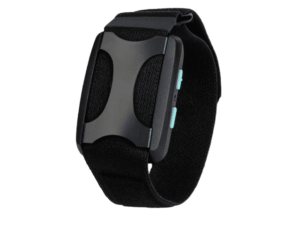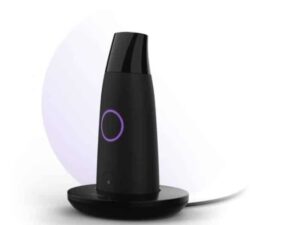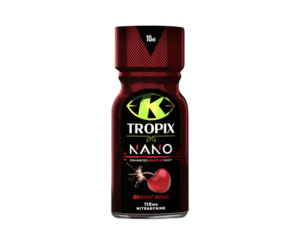Maitake Mushroom: King of Mushrooms for Brain Health and Beyond
In the vast world of medicinal mushrooms, maitake (Grifola frondosa) stands tall as a true powerhouse of cognitive and overall health benefits. Revered in traditional Eastern medicine for centuries, this adaptogenic fungus is now gaining global recognition as a potent nootropic and natural ally for mind-body wellness. At Holisticnootropics.com, we’re passionate about evidence-based, nutrition-first strategies to optimize mental performance and emotional well-being. Join us as we explore the science, tradition, and practical applications of maitake mushroom in enhancing brain function and supporting holistic health.
Biohack Your Brainpower
What is Maitake Mushroom?
Maitake, meaning “dancing mushroom” in Japanese, is an edible polypore fungus that grows in clusters at the base of trees, particularly oaks. Native to China, Japan, and North America, maitake has a rich history of use in Asian herbal traditions for its medicinal properties. In recent years, scientific research has begun to validate many of these traditional uses, revealing maitake’s unique composition of bioactive compounds, such as:
- Beta-glucans (especially D-fraction)
- Polysaccharides
- Triterpenes
These constituents work synergistically to support brain health, immune function, stress resilience, and overall physiological balance. Let’s dive into the specific nootropic and therapeutic benefits of this functional mushroom.
Maitake Mushroom Benefits for Brain Health and Cognition
Maitake’s cognitive benefits are multifaceted, influencing neurotransmitter balance, neurogenesis, and neuroprotection. Here’s how this adaptogenic mushroom supports optimal brain function:
- Enhances focus and mental clarity: Maitake’s active compounds, particularly beta-glucans, may help improve concentration and reduce brain fog, promoting a state of alert relaxation.
- Boosts memory and learning: By stimulating the production of Nerve Growth Factor (NGF) and promoting neurogenesis, maitake supports the formation of new neural connections and enhances cognitive plasticity.
- Regulates mood and stress response: Maitake acts as an adaptogen, helping the body and mind adapt to stressors and maintain emotional equilibrium. It may also modulate neurotransmitters like serotonin and GABA for improved mood and reduced anxiety.
Learn More: Adaptogens and Nootropics: What’s The Difference?
How Maitake Mushroom Works in the Brain
Maitake’s nootropic effects are mediated through several key mechanisms of action:
- Nerve Growth Factor (NGF) stimulation: Maitake enhances the production of NGF, a critical protein for the growth, maintenance, and survival of neurons. Higher NGF levels support neuroplasticity, learning, and memory.
- AMPA receptor interaction: Maitake’s unique beta-glucan, D-fraction, interacts with AMPA receptors in the brain, which play a central role in synaptic transmission, mood regulation, and cognitive processing.
- Neuroprotection and antioxidant activity: Maitake’s bioactive compounds exhibit potent antioxidant and anti-inflammatory properties, shielding brain cells from oxidative stress and supporting overall neurological health.
Maitake Mushroom’s Holistic Health Benefits
Beyond its nootropic potential, maitake offers a wide spectrum of benefits for overall mind-body wellness:
- Immune system modulation: Maitake’s beta-glucans and polysaccharides stimulate the immune system, enhancing the body’s natural defenses against pathogens and abnormal cell growth. Maitake has shown promise in supporting cancer prevention and treatment.
- Blood sugar and metabolic health: Maitake may help regulate glucose metabolism, improve insulin sensitivity, and support healthy blood sugar levels, making it a valuable ally for those with or at risk for diabetes.
- Cardiovascular support: This medicinal mushroom may help lower cholesterol levels, reduce blood pressure, and improve overall cardiovascular function, promoting heart health and reducing the risk of chronic diseases.
Maitake Mushroom Nutrition Facts
Maitake is a nutrient-dense superfood, packed with essential vitamins, minerals, and health-promoting compounds. Here’s a breakdown of its nutritional profile per 1 cup (70g) serving:
| Nutrient | Amount per 1 cup (70g) |
|---|---|
| Calories | 22 |
| Protein | 1.4g |
| Fat | 0.1g |
| Carbs | 4.9g |
| Fiber | 1.9g |
| Vitamin B3 (Niacin) | 4.6mg (23% DV) |
| Vitamin B2 (Riboflavin) | 0.2mg (10% DV) |
| Potassium | 143mg (4% DV) |
In addition to these nutrients, maitake is an excellent source of vitamin D, copper, and antioxidants like ergothioneine and glutathione.
Maitake Mushroom Dosage and How to Take
Maitake can be consumed as a whole food or in supplement form. When incorporating this medicinal mushroom into your nootropic regimen, consider the following guidelines:
- Dosage range: The typical dosage for maitake extract is 500-3000mg per day, divided into two or three doses. Start with a lower dose and gradually increase as needed and tolerated.
- Supplement forms: Maitake supplements are available as extracts in powder, capsule, or tincture form. Look for products made from the mushroom fruiting body (not mycelium) and standardized to contain at least 30% beta-glucans.
- Culinary use: You can also enjoy maitake mushrooms in culinary dishes. Select fresh, firm specimens and store them in a paper bag in the refrigerator for up to a week. Maitake has a rich, umami flavor and a tender texture, making it a delicious addition to stir-fries, soups, and sautés.
As with any new supplement, it’s essential to consult with a healthcare professional before starting, especially if you have pre-existing medical conditions or are taking medications.
Potential Maitake Mushroom Side Effects and Interactions
Maitake is generally well-tolerated, with few reported side effects. However, some people may experience:
- Digestive discomfort (nausea, bloating, diarrhea)
- Allergic reactions (skin rash, itching, difficulty breathing)
- Hypoglycemia (low blood sugar), especially when combined with diabetes medications
Maitake may also interact with certain medications, such as:
- Blood thinners (e.g., warfarin)
- Diabetes medications (e.g., insulin, metformin)
- Immunosuppressants (e.g., cyclosporine)
If you are pregnant, nursing, or have a medical condition, consult your healthcare provider before using maitake supplements.
Where to Buy Maitake Mushroom
When shopping for maitake supplements, quality and purity are paramount. Look for reputable brands that offer organic, third-party tested products made from the mushroom fruiting body. Some trusted sources include:
Learn More: Best Lion’s Mane Mushroom Supplements
You can also find fresh or dried maitake mushrooms at specialty grocery stores, farmers markets, and online retailers specializing in gourmet or medicinal mushrooms.
Maitake Mushroom Discussions on Reddit
Comparing Maitake to Other Medicinal Mushrooms
Maitake contains unique beta-glucans, a type that is not present in other mushrooms. So it is very well possible the effects are not the same when compared against others.
u/Kostya93 in discussion ‘Maitake’
Importance of Maitake Extract Quality
If you choose a high quality Maitake supplement with a high percentage of those beta-glucans (supported by actual test reports of course, so for sure not the Mushroom Wisdom stuff) it should more or less yield the same results as described in the research.
u/Kostya93 in discussion ‘Maitake’
Maitake’s Uses and Reputation
For anti-viral and immune supporting effects Maitake is very good, it’s known as ‘King of Immunity’ in SE-Asia.
u/Kostya93 in discussion ‘Maitake’
Learn More: The Magic Of Mushrooms w. Tony Shields (Ep 32)
Frequently Asked Questions About Maitake Mushroom
How is maitake different from other medicinal mushrooms?
Maitake’s unique beta-glucan profile, particularly D-fraction, sets it apart from other medicinal mushrooms. While it shares some common benefits, such as immune support and adaptogenic properties, maitake’s specific compounds may offer targeted benefits for cognition, mood, and metabolic health.
What is the best way to take maitake mushroom?
For nootropic purposes, maitake extract supplements (powder or capsules) are the most potent and convenient option. Look for products standardized to contain at least 30% beta-glucans and made from the mushroom fruiting body. You can also incorporate whole maitake mushrooms into your diet for added nutritional benefits.
Are there any side effects or drug interactions with maitake?
Maitake is generally safe and well-tolerated, but some people may experience mild digestive discomfort or allergic reactions. It can interact with blood thinners, diabetes medications, and immunosuppressants. Always consult your healthcare provider before using maitake, especially if you have a pre-existing condition or are taking medications.









